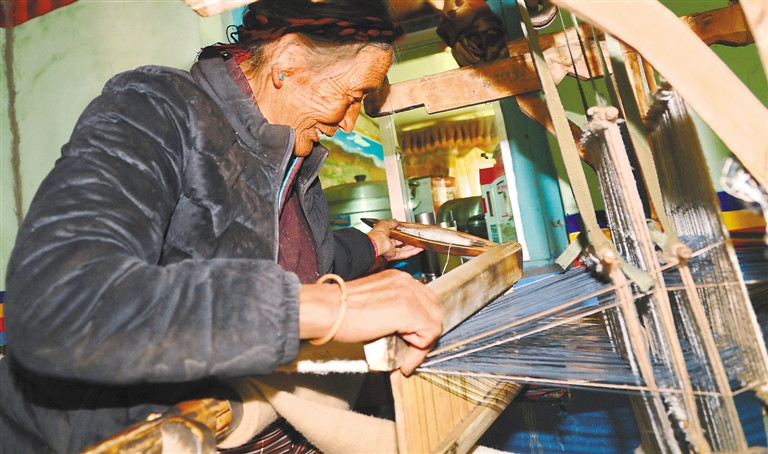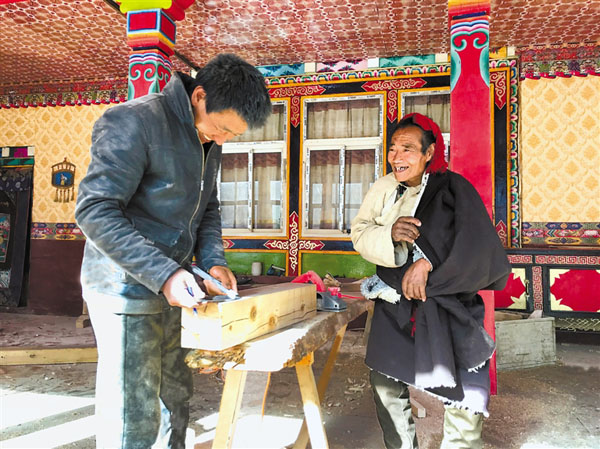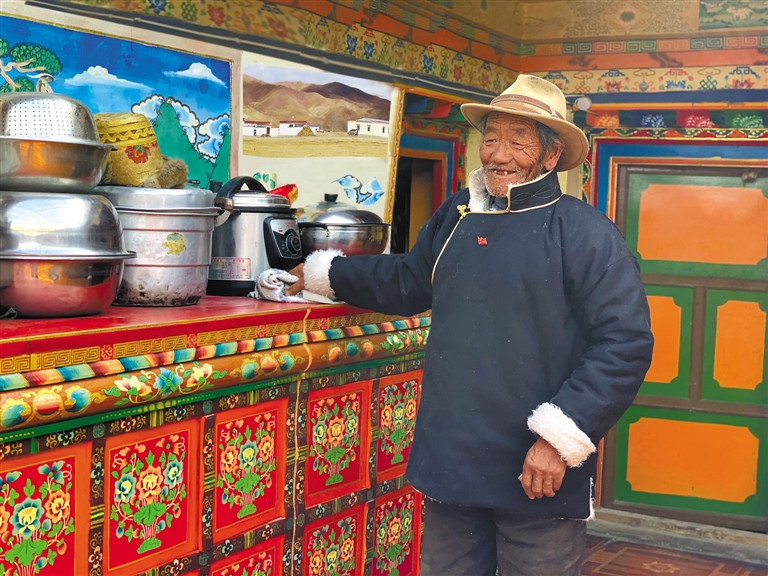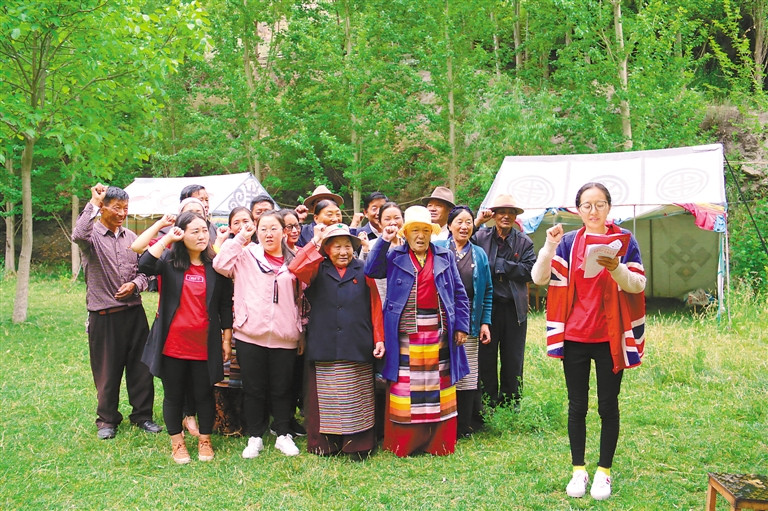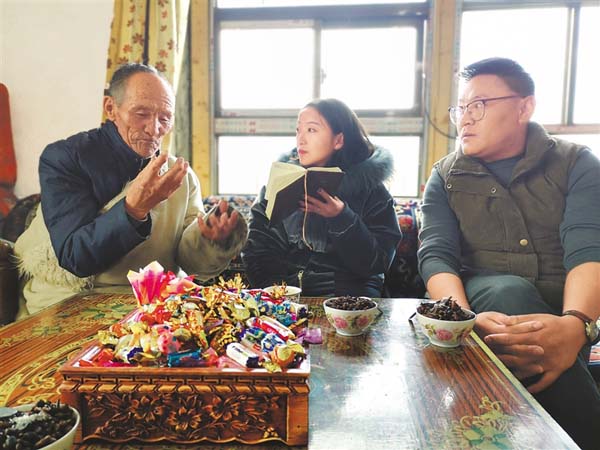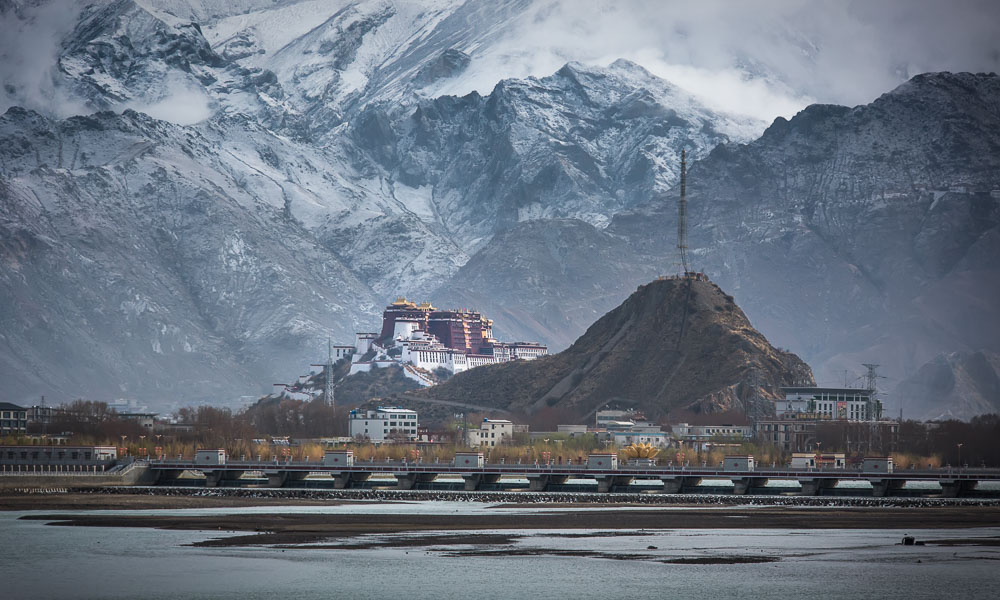"Democratic reform gave me my first full meal"
Eighty-five-year-old Lhakyi is a resident of Dongxiong Village in Jindong Township, part of Nang County in Nyingchi City, southwest China’s Tibet. Inside a two-story Tibetan style house, Lhakyi’s daughter, Bajia Drolma, told reporters: “When my mom heard you were coming, she was so excited she couldn’t fall asleep last night.”
After taking a sip of the butter tea, Lhakyi started to tell her story. “Before I was born, my mom was a serf who worked for two estates, so I was a serf too when I was born,” she said.
“When I was a kid, I had to shepherd the cattle and cut the grass every day. If I didn’t fill up two buckets with enough grass, I’d certainly be beaten. The bucket was taller than me. When I grew up to a teenager, the farm owner made me carry highland barley, and I often had to carry 30 or 35 kilogram of grains a time to another estate several kilometers away on the mountain road.”
“The roads were hard then, broken rocks were everywhere. I had no shoes, and my clothes were shabby too. After every trip, wounds covered my body and feet. There was no money for medicine. When it was too painful to bear, I’d go to the river nearby to have a wash on my wounds.” Lhakyi had an older sister who was a serf too, tragically, she was severely beaten for not finishing the heavy work assigned by the farm owner and soon got dead.
In 1959, the People’s Liberation Army (PLA) arrived in the village, and a villagers’ assembly was held. It was announced that the serf system was abolished, and the villagers were given land and livestock.
Lhakyi said: “Our family got four mu (0.27 hectares)of land and a yak. When the PLA soldiers saw we had nothing to eat, they gave us some grains too. We made a big meal that day. It was the first time I had a full meal.”
“With all the help we were given, we were able to feed ourselves by the following year and never went hungry again. Soon, we had our daughter, Bajia Drolma,” Lhakyi said and patted her daughter’s hand.
Because of the illnesses Lhakyi developed when she worked as a serf, she was not in great health and was often hospitalized. Without a working person in the home, they were short on money.
When learned of Lhakyi’s situation, a Party member support group was established to help her family. They took turns helping the family with farmwork, took her to the hospital, and donated goods and money.
“A lot of articles in the house were given by the Party members in the village. I’m truly grateful for their help,” said Lhakyi.
“The Communist Party of China changed my life. I’m so grateful for our party and our government.” Lhakyi kept repeating those words as the reporters finished their visit.
Tibet Stories
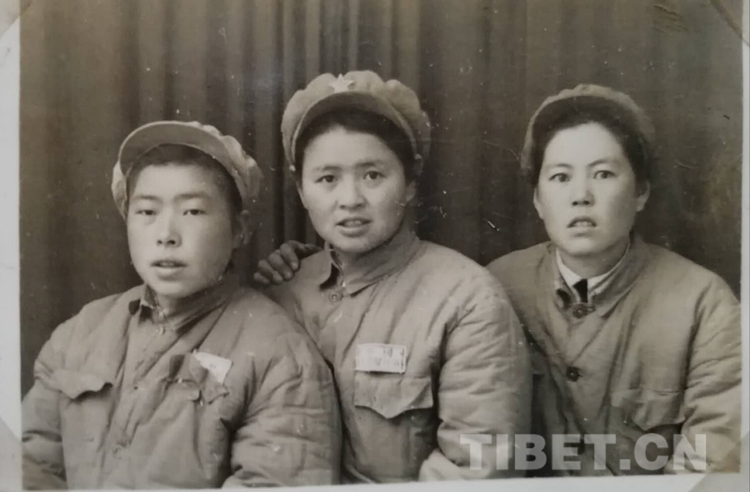
My parents were soldiers of the 18th Army
In 1950, the 18th Army of the Second Field Army of PLA was ordered to set off on the journey...
Editor’s Choice
- Tibet shows it cares for a cleaner Mt Qomolangma
- The United States' new tactics of interfering in the internal affairs of China
- Prominent Belgian sinologist says nobody can deny rapid economic development of Tibet
- Tibet's cultural industry sees sound development
- 11th Panchen Lama: abolition of serfdom engraved in the minds of the people

